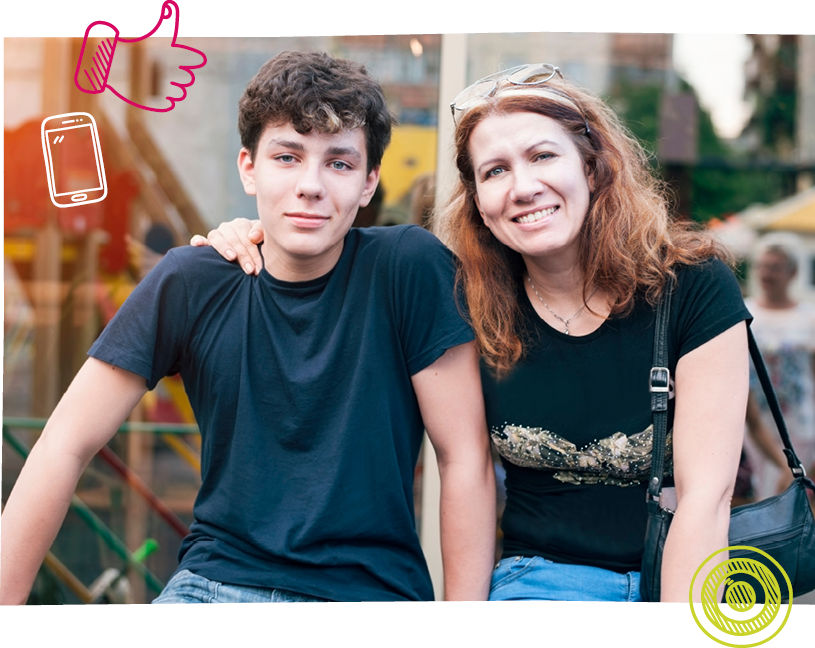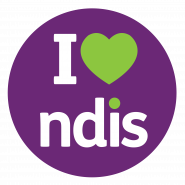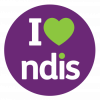Positive Behaviour Support – Help With Communication & Social Skill Development
We help enhance your communication and social skills so that you can build meaningful connections with friends, family and your community
As part of our Positive Behaviour Support service, our team is committed to helping individuals with disabilities to develop both fundamental and advanced social skills. Our tailored social skills training for participants with intellectual disabilities is designed to empower you or your loved one with the tools and techniques necessary to navigate social interactions confidently and meaningfully.
Ready to get started?

Why are communication & social skills important?
Enhancing communication and social skills in people with disabilities, children and adolescents can have a profound impact on their overall quality of life. Social skills training for intellectual disabilities can actively foster:
Self-Confidence: Effective communication and social skills empower individuals to express themselves with clarity and assertiveness.
Positive Relationships: By developing communication and social skills, individuals can connect with others on a deeper level, form genuine connections, and build meaningful friendships.
Social Opportunities: Whether it’s engaging in conversations, participating in group activities, or joining community events, enhanced communication and social skills enable people to navigate social environments with ease and expand their social circle.
Improved Emotional Regulation: Developing an understanding of non-verbal cues, active listening, and empathy, can help individuals better navigate conflicts, resolve misunderstandings and maintain healthier emotional wellbeing.
Independence: Strong personal and social skills empower individuals to advocate for themselves, making their voices heard and contributing to decision-making processes that affect their lives.
Are you ready to get started? It’s easy!
Why choose us?

Achieve your goals

Local behaviour support

Multidisciplinary Care
Multidisciplinary care is when a team of health professionals with different skills collaborate to support as many of your needs as possible. Our multidisciplinary team can support you reach your goals!
Communication & Social Skill Development Frequently Asked Questions
The development of personal and social skills requires several necessary building blocks. Here are some key elements of social skill development to consider:
- Communication Skills: Effective communication is fundamental to social interactions. Building strong communication skills involves developing both verbal and non-verbal communication abilities, such as active listening, expressive language, body language, and understanding social cues.
- Emotional Intelligence: Developing emotional intelligence involves recognising and understanding one’s own emotions and those of others. It includes skills such as empathy, self-awareness, self-regulation, and the ability to navigate and manage emotions in social contexts.
- Perspective-Taking: Perspective-taking is the ability to understand and consider the thoughts, feelings, and perspectives of others. It helps in developing empathy, promoting understanding, and building positive relationships.
- Problem-Solving: Developing problem-solving skills is crucial for navigating social situations effectively. This includes identifying social challenges, generating possible solutions, evaluating consequences, and making informed decisions.
- Cooperation and Collaboration: Learning to work cooperatively and collaborate with others is essential for successful social interactions. This involves skills like sharing, taking turns, compromising, respecting others’ opinions, and working towards common goals.
- Social Etiquette and Norms: Understanding social etiquette and norms helps individuals navigate social expectations and interactions. This includes learning appropriate greetings, manners, personal space boundaries, and cultural sensitivities.
- Self-Advocacy: Encouraging individuals to advocate for themselves is an important part of teaching intellectual disability communication skills. Building self-advocacy skills involves expressing needs, preferences, and boundaries, and effectively communicating with others to meet those needs.
- Social Problem-Solving: Individuals need to develop skills to resolve conflicts, handle disagreements, and manage social challenges effectively. This includes negotiation, compromise, assertiveness, and seeking win-win solutions.
- Practice and Exposure: Practising social skills in real-life situations and exposing individuals to various social environments and activities can help them generalise their skills and become more confident and adaptable in different social settings.
Recognising difficulties with personal and social skills in a child can vary depending on their age, developmental stage, and individual characteristics. Here are some signs that may indicate delays in a child’s social development.
- Difficulty with Social Interactions: Your child may struggle to initiate or maintain conversations, have trouble taking turns in a conversation, or find it challenging to join group activities or play with peers.
- Limited Eye Contact and Body Language: Children with social skills difficulties may have difficulty maintaining eye contact, reading social cues from others, or understanding non-verbal communication, such as facial expressions and body language.
- Lack of Empathy or Understanding of Others’ Perspectives: Your child may have difficulty recognising and understanding others’ feelings, thoughts, or needs, leading to challenges in showing empathy or taking others’ perspectives.
- Trouble Making and Maintaining Friendships: Children with social skills challenges may find it difficult to establish and sustain friendships. They may struggle with sharing, compromising, or understanding social boundaries, which can affect their ability to develop meaningful relationships with peers.
- Difficulty Managing Social Situations: Your child may have difficulty adapting to different social situations or understanding appropriate social behaviours. They may struggle with following social rules, taking feedback, or managing conflicts or disagreements.
- Limited Social Initiations: Children with social skills difficulties may have trouble initiating social interactions or may rely heavily on others to initiate conversations or activities.
Social skill and communication support and speech pathology are related fields but focus on different aspects of communication development and intervention. Here’s a breakdown of their differences:
Social Skill and Communication Support:
Social skill and communication support generally refer to interventions and strategies for teaching social skills to people with intellectual disabilities. This support can involve various professionals, such as educators, therapists, or support workers, who provide guidance, coaching, and structured interventions to help individuals develop effective communication skills, social interactions, and navigate social environments. They may focus on areas such as conversation skills, non-verbal communication, social problem-solving, perspective-taking, and social-emotional development.
Social skill and communication support can be provided in various settings, including community programs, therapeutic settings, and schools. Whether a practitioner is teaching communication skills to students with disabilities or adults, the emphasis is on improving overall communication abilities, including both verbal and non-verbal aspects, as well as social competence and social interaction skills.
Speech Pathology:
Speech pathology, also known as speech-language therapy or speech therapy, focuses specifically on addressing communication disorders and difficulties. Speech-language pathologists (SLPs) assess, diagnose, and provide interventions for individuals with a wide range of communication challenges, including speech sound disorders, language delays or disorders, fluency disorders (stuttering), voice disorders, and difficulties with swallowing or feeding.
SLPs work closely with individuals to identify and address specific communication goals and develop personalised intervention plans. They use evidence-based techniques and strategies to improve speech production, language comprehension and expression, social communication skills, and overall communication abilities. Speech pathology interventions can involve individual or group therapy sessions, home exercises, assistive technology, and collaboration with families and other professionals.
You can read more about our NDIS speech pathology services here,
It’s important to note that there can be overlap between the two fields, as communication difficulties may impact social interactions and vice versa. In some cases, individuals may benefit from a combination of social skill and communication support as well as speech pathology interventions to address their unique needs and goals. Collaboration between professionals in both areas can be valuable to provide comprehensive support for individuals with communication challenges.

NDIS Positive Behaviour Support
The National Disability Insurance Scheme (NDIS) is a way of supporting people with permanent and significant disability. The NDIS is designed to give individuals greater choice and control over when, where and how their funded supports are provided. The specific support and funding available is based on each individual’s specific needs. You can find out more about what therapeutic supports are funded by referring to the NDIS website.




